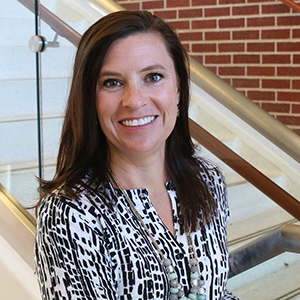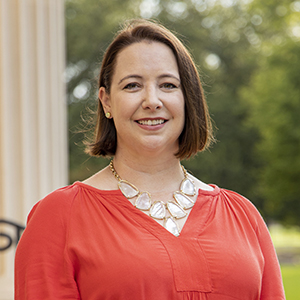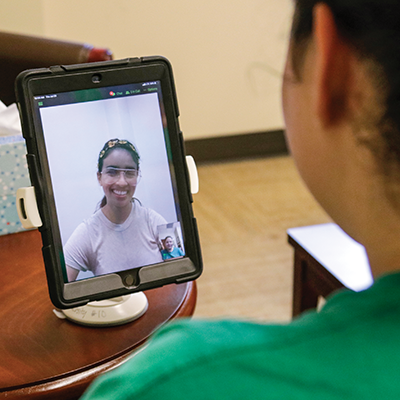Significant New Grants Expand Services
Baylor School of Education faculty have recently received grants to expand and enhance services to children with developmental disabilities and to deepen the diversity of students pursuing STEM careers.
NATIONAL GRANTS
In a first for any Baylor University faculty member, Dr. Stephanie Gerow, assistant professor in the Department of Educational Psychology, received a prestigious Institute of Education Sciences (IES) Early Career Development and Mentoring Award from the U.S. Department of Education. Through the $493,412 grant, Gerow and her research team are developing a program to train community service providers and caregivers of young children with developmental delays how to implement problem behavior interventions.
Dr. Tracey Sulak, clinical associate professor in the Department of Educational Psychology, received a highly competitive grant award from the National Science Foundation (NSF) for $99,999 to work with fourth – eighth graders in a STEM mentoring program. For several years, Sulak has been working with Dr. Marty Harvill, senior lecturer in Baylor’s Biology Department, and with Baylor undergraduates in biology who mentor middle-grades students via teleconferencing as the students develop an original science project. The grant is part of NSF’s INCLUDES program (Inclusion Across the Nation of Communities of Learners of Underrepresented Discoverers in Engineering and Science) and will allow Baylor, in collaboration with researchers at other universities, to expand its mentoring model to other parts of the nation. Sulak said the project aims to increase access to high-quality STEM learning tailored to meet the needs of diverse learners in public schools and increase the collaboration, communication, and problem-solving skills for the college mentors.
STATE OF TEXAS GRANTS*
Dr. Tonya Davis, associate professor in the Department of Educational Psychology, launched The PEAKS Project (Preparing Educators with Autism Knowledge and Skills) through a grant of $474,843 from the Texas Higher Education Coordinating Board (THECB). The program provides Texas teachers and other educators with specialized professional development in evidence-based practices for students with autism.
Up to 300 participants will have the opportunity to attend three phases of synchronous and asynchronous online professional development sessions that focus specifically on evidence-based behavioral intervention practices.
Davis noted that even teachers certified in special education may lack these specialized skills. “To be certified, a special education teacher in Texas has to learn to work with every age group from 3 to 21 and with every disability served by special education,” Davis said. “In the classroom, teachers’ plates are incredibly full. We’re excited to invest in a group of people who care so much about their students.”
Dr. Gerow has received three rounds of funding from THECB to support Baylor’s “Caregiver Coaching” program that provides telehealth training for parents of children with developmental disabilities. Baylor faculty and graduate students in Applied Behavior Analysis (ABA) programs help parents define behavioral goals and implement evidence-based ABA strategies at home.
Through the Caregiver Coaching grant, families receive services in their home, over video conference on a Baylor-provided iPad, with a therapist from Baylor. (photo, right)
“We coach parents to implement these practices within their family routine and home life," Gerow explained. “Through this model we can actually watch parents interact with their child and provide feedback in real time.”
With a combined total of $860,000, the three grants have provided training to more than 300 Texas families. Gerow’s most recent grant award was for $369,699.
*This work was supported in whole or in part by a grant from the Texas Higher Education Coordinating Board (THECB). The opinions and conclusions expressed in this document are those of the author(s) and do not necessarily represent the opinions or policy of the THECB.


